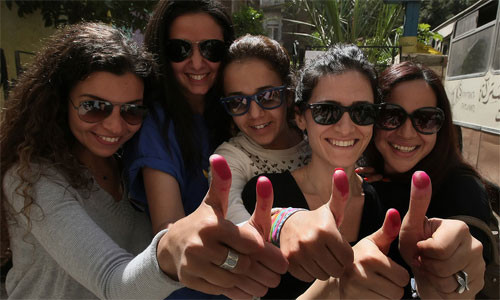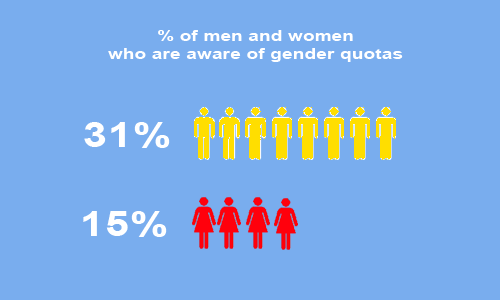The International Foundation for Electoral Systems (IFES) works in Egypt to support electoral reform dialogue, transparency and good governance and promotes citizen participation in electoral processes. IFES is at the forefront of the electoral framework reform dialogue in Egypt, and its Democracy, Elections and Technical Assistance (DELTA) III program aims to provide technical support, comparative information and best practices in the administration of elections.
IFES works to involve relevant Egyptian stakeholders, including legislators, politicians, ministries, members of judiciary bodies, civil society, research centers, and universities in dialogue based on objective information on the electoral process. IFES also works to raise voter awareness of political rights and responsibilities. Through these means, IFES contributes to long-term enhancements of political processes that are driven by Egyptian stakeholders and are appropriate to the Egyptian context.
Our Impact
Electoral Management Advisory Services: IFES provides information and technical assistance to national institutions and stakeholders as requested, including the Ministry of Interior (MoI) and the High Judiciary Elections Committee (HJEC). We have provided advice on issues such as electoral regulations and procedures, voter registry, poll worker and judicial training, access for persons with disabilities, procurement of election materials, and voter education.
Training of Judiciary Staff: In collaboration with Cairo University’s Faculty of Economics and Political Science, IFES conducted a series of workshops to provide knowledge and tools to the relevant judicial authorities supervising the parliamentary elections to ensure efficient electoral management, understanding of the election law and standardization of administrative processes.
Voter Education Campaigns: IFES focuses on the importance of participation in the electoral process by working with Egyptian stakeholders to design and implement non-partisan voter education campaigns aimed at educating voters about their rights and responsibilities. IFES assisted with the development of media products for nationwide official voter education campaigns carried out by the HJEC in the run-up to the 2011-2012 parliamentary elections. IFES also partnered with Egyptian civil society organizations to implement voter education activities encouraging participation of traditionally marginalized voters.
Electoral Information Website: IFES developed a publicly-accessible website (www.sowty.org) to provide accurate and updated information about voting rights and electoral processes.
Strengthening Civil Society: IFES holds regular trainings on voter education techniques and approaches and provides material assistance and voter education tools to civil society organizations.
Electoral Reform Workshops and Conferences: IFES holds workshops and conferences in cooperation with Egyptian partners, such as the Al-Ahram Center for Political and Strategic Studies and the American University of Cairo, to discuss various aspects of electoral processes.
Procurement of Election Materials: IFES worked with the MoI and HJEC to procure various materials for the 2011-2012 parliamentary elections including indelible ink, poll worker vests and ballot boxes and seals.




